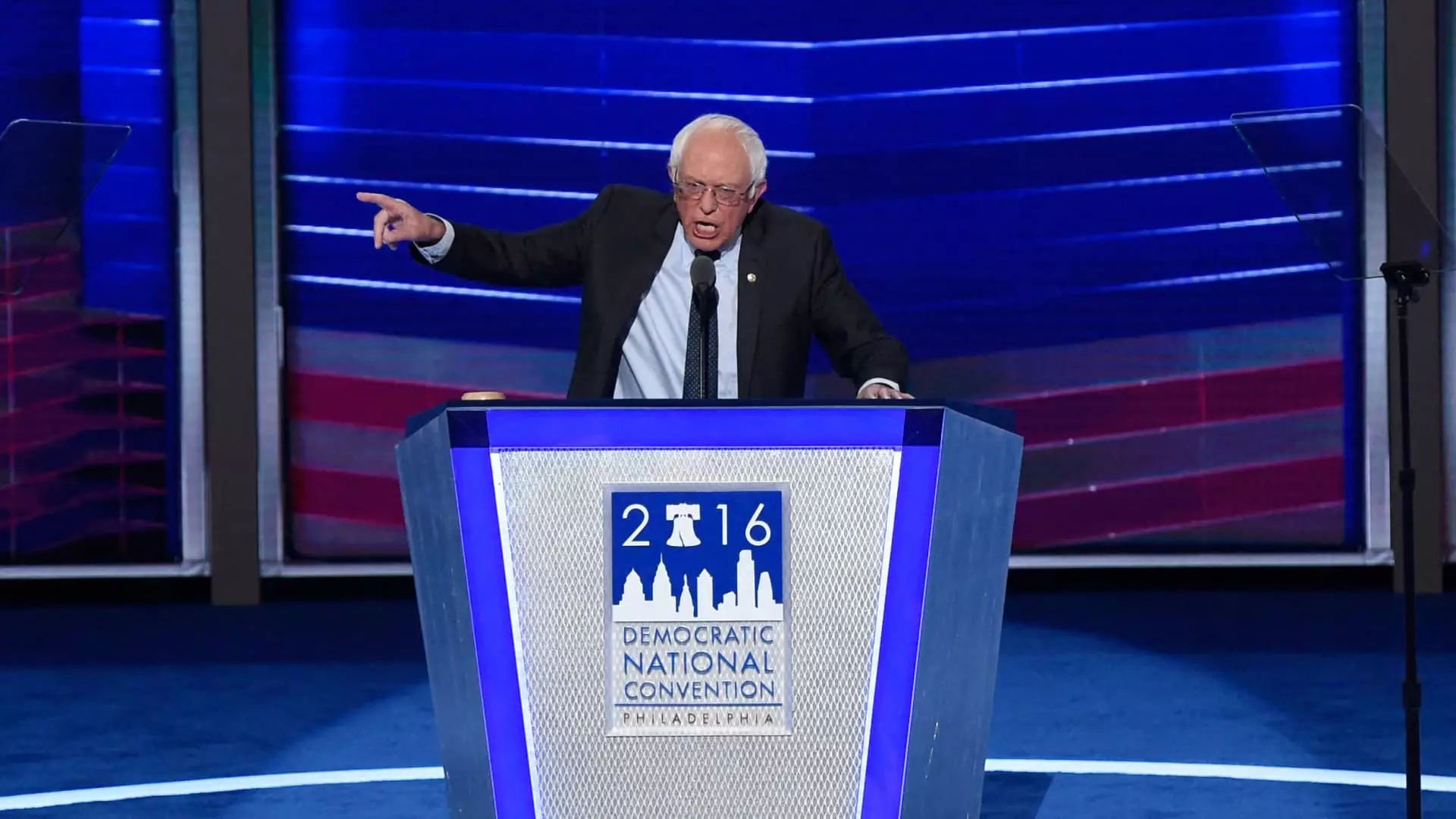Sen. Bernie Sanders, I-Vt., made it clear during his primetime appearance at the Democratic National Convention that he is unwavering in his support for universal healthcare. In his speech, Sanders emphasized the need to guarantee health care to all people as a human right, not a privilege. Despite knowing that Vice President Kamala Harris does not share his stance on this issue, Sanders reiterated his advocacy for a Medicare for All program. This highlights a stark contrast between Sanders’ progressive views and Harris’ more moderate approach to healthcare policy.
Another key point of divergence between Sanders and Harris is the influence of big money in politics. Sanders took a strong stance against billionaire megadonors and corporate monopolists, emphasizing the need to take on big pharma, big oil, big ag, big tech, and other entities whose greed obstructs progress for working people. This criticism comes in spite of the fact that Harris has received support from billionaire megadonors and small-dollar donations, raising questions about the consistency of Sanders’ message.
Sanders did not shy away from addressing the issue of class warfare in his speech, aligning himself with the working people and calling out the corporate interests that impede their progress. By highlighting universal healthcare, money in politics, and class warfare as key themes in his address, Sanders distanced himself from the traditional convention practice of unequivocally supporting the party’s nominee. While Sanders did express some support for Harris in her election fight against former President Donald Trump, his emphasis on these contentious issues underscored his differences with the vice president.
Sanders’ decision to emphasize the contrasts between his positions and Harris’ platform may have strategic implications. While most of his party’s leaders support Harris and her campaign, Sanders’ willingness to speak out against some of her policies could serve to broaden the Democratic Party’s appeal to moderate and undecided voters. This is particularly relevant in light of a poll that found a significant percentage of likely voters viewing Harris as too liberal or too progressive. By showcasing his own progressive views, Sanders offers a counterpoint to Republican attempts to portray Harris as a radical, potentially reshaping the narrative around her candidacy.
Sanders’ advocacy for progressive policies could help to dispel misconceptions about Harris and the Democratic Party as a whole. By presenting himself as a Democratic Socialist and a vocal proponent of far-left policies, Sanders reminds voters that there is a spectrum of ideological beliefs within the party. This nuanced portrayal may resonate with voters who are wary of far-reaching progressive agendas, providing a more balanced perspective on the diversity of democratic ideologies.
Overall, Sen. Bernie Sanders’ DNC speech underscored his unwavering commitment to progressive values, even at the expense of aligning with the party’s nominee. His focus on universal healthcare, money in politics, and class warfare highlighted the ideological differences between himself and Vice President Kamala Harris, offering voters a broader view of the Democratic Party’s policy landscape. While Sanders’ approach may have been unconventional, it ultimately serves as a powerful statement of ideological diversity within the party and a strategic counterpoint to Republican attacks on Harris’ candidacy.

Leave a Reply